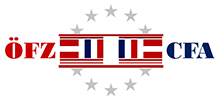Hybrid Discussion: The European Union in Competition with the United States and China. How to Balance Free Trade, Competitiveness and Economic Security?
BSC Panel: The Judiciary as the Guardian of Fundamental Values: Keeping the Rule of Law at the Center of the EU Accession Policy
November 19, 2024Hybrid Discussion: The European Union in Competition with the United States and China. How to Balance Free Trade, Competitiveness and Economic Security?
3 December 2024, 10h00-11h30
Online or at Ifri (27 rue de la Procession 75015 Paris)
This discussion will be held in English.
As the geopolitical context has changed, so has the approach to international economic relations and the rules-based multilateral framework. Covid and Russia’s war against Ukraine have exposed the risks of extended supply chains and of having become dependent on a single supplier.
China’s lack of reciprocity in market access and its mercantilist state capitalism have led to a backlash in the United States. An already weakened WTO was hardly an obstacle to impose tariffs and offer massive subsidies to stay ahead in the race for technological leadership and advance the green transition through preferential treatment for US industry. The prospect of a new Trump administration confronts the European Union with additional challenges.
Why has Europe fallen so far behind in the global competition in advanced technologies? It has expanded its toolbox to defend itself against unfair competition and adopted an economic security strategy for strengthening competitiveness and mitigating risks. But is the flouting of the rules for fair trade and competition by others the main reason for Europe’s deteriorating productivity and competitiveness rather than its own policy failure ? And would the EU actually want or be able to copy the Chinese or US recipes of massive state support or deep capital markets with huge pools of venture capital ? What would be the risks for distorting competition and the internal market ? At the start of the new Commission the EU needs to address these issues to cope with the challenges arising from policies pursued by US, China and Russia.
